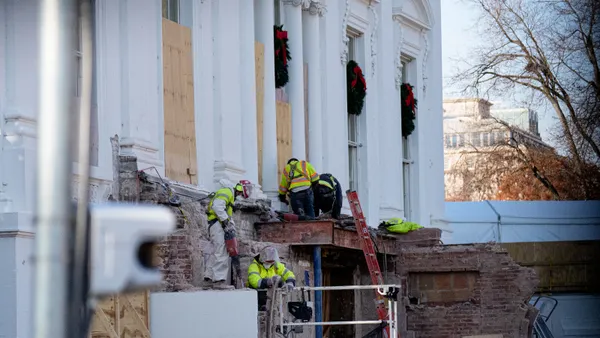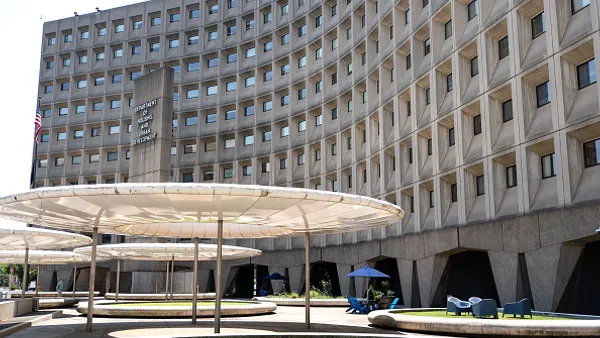Dive Brief:
- AECOM is suing Zurich American Insurance for breach of contract, as well as violation of "the implied covenant of good faith and fair dealing," alleging that Zurich refused to pay coronavirus-related claims even though such coverage was not specifically excluded in AECOM's "all-risk" property insurance policies. AECOM claims its damages are in the millions of dollars.
- In the complaint, AECOM argues that because of the size of its global operations, it decided to purchase the all-risk policies, which should have protected the company from economic losses as a result of any risk not specifically excluded from coverage. The insurance industry, AECOM said, has a standard "virus and bacteria" exclusion form, but Zurich did not include it in the policies it sold AECOM.
- Some of the losses AECOM says Zurich will not cover are for the installation of physical barriers to isolate the aerosolized droplets produced by those who are infected. AECOM says these droplets make a property unusable for its intended purpose and function by "physically altering the air and airspace in which they are present and the surfaces to which they attach."
Dive Insight:
AECOM also said in the complaint that Zurich knew or should have known that many courts have determined that the presence of a hazardous substance in a property, including within its airspace, is considered property damage and that there may be “direct physical loss” to the property even if it has not sustained physical damage.
The lawsuit noted that AECOM has locations, offices, operations and projects around the world and that to date, more than 500 AECOM employees throughout the world have tested positive for COVID-19.
"Since the outbreak of SARS-Cov-2 and COVID-19, and in response thereto, civil authorities throughout the world issued stay-at-home and shelter in place orders, travel restrictions, quarantines, and other orders, including orders requiring the suspension of non-essential business operations," the lawsuit reads.
Construction Dive reached out to AECOM, but the company declined to comment.
This is one example of the legal issues — such as contract obligations, liability for employee exposure and requiring vaccinations for employees — contractors will have to deal with as a result of the COVID-19 pandemic.
Contract language prior to the March 2020 lockdowns likely did not include how events like pandemic-related schedule disruptions should be handled, and some contractors might end up in court to resolve those issues.
Contractors might also have to deal with lawsuits claiming that a lack of inadequate COVID-19 safety protocols led to an employee or some third party being exposed. This is top of mind for business owners, and some states like Florida, Indiana and Montana have introduced legislation that would limit business liability in some circumstances. These measures would not completely absolve employers but would, to some degree, offer protection for those businesses that followed the recommended COVID-19 safety measures.
There is also likely to be pushback from some workers if their employees require they be vaccinated, although the Equal Employment Opportunity Commission has said that employers can make proof of vaccination a condition of employment under certain circumstances. Those who have a valid medical or religious reason that prevents their being vaccinated could be exempt from such a requirement.













